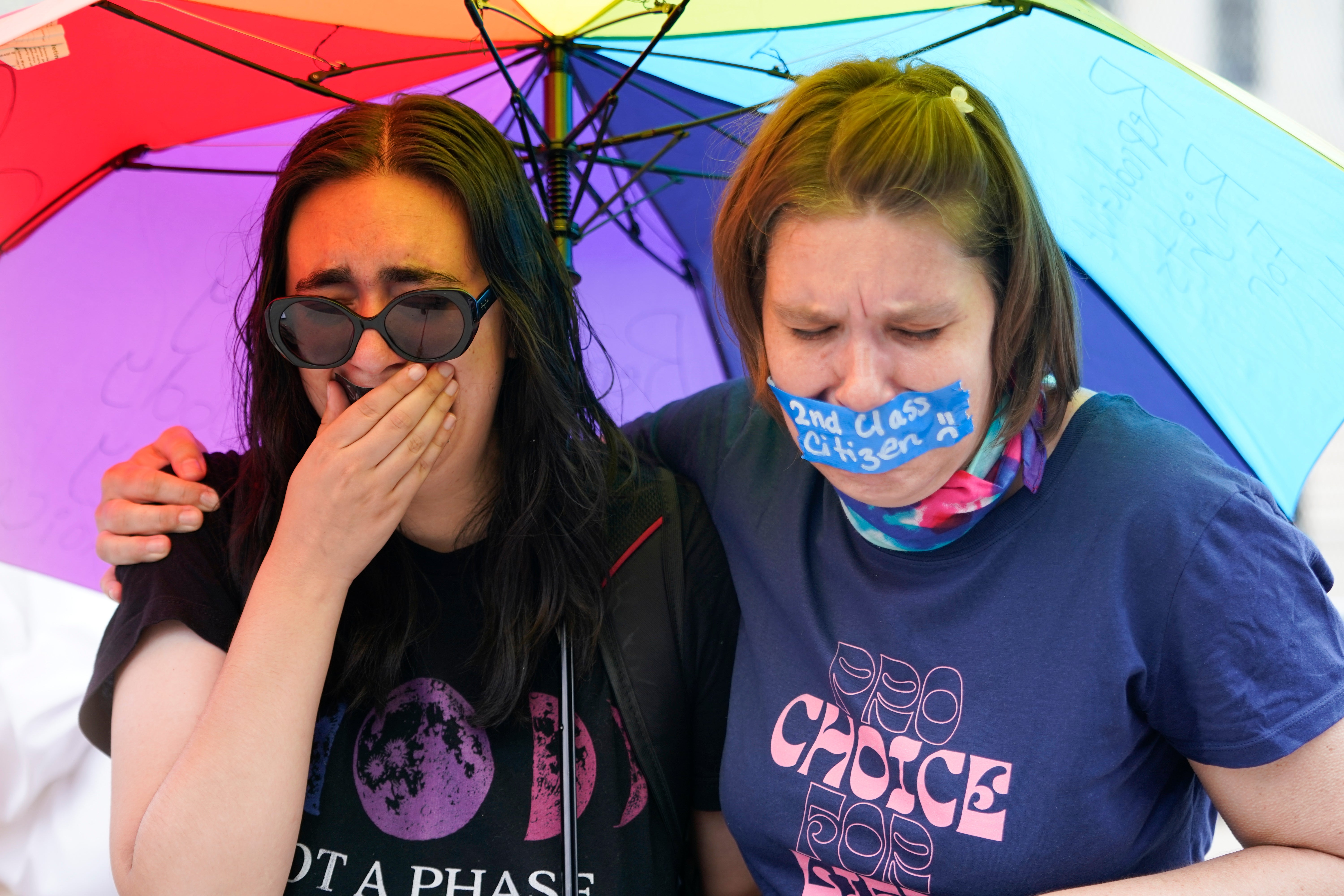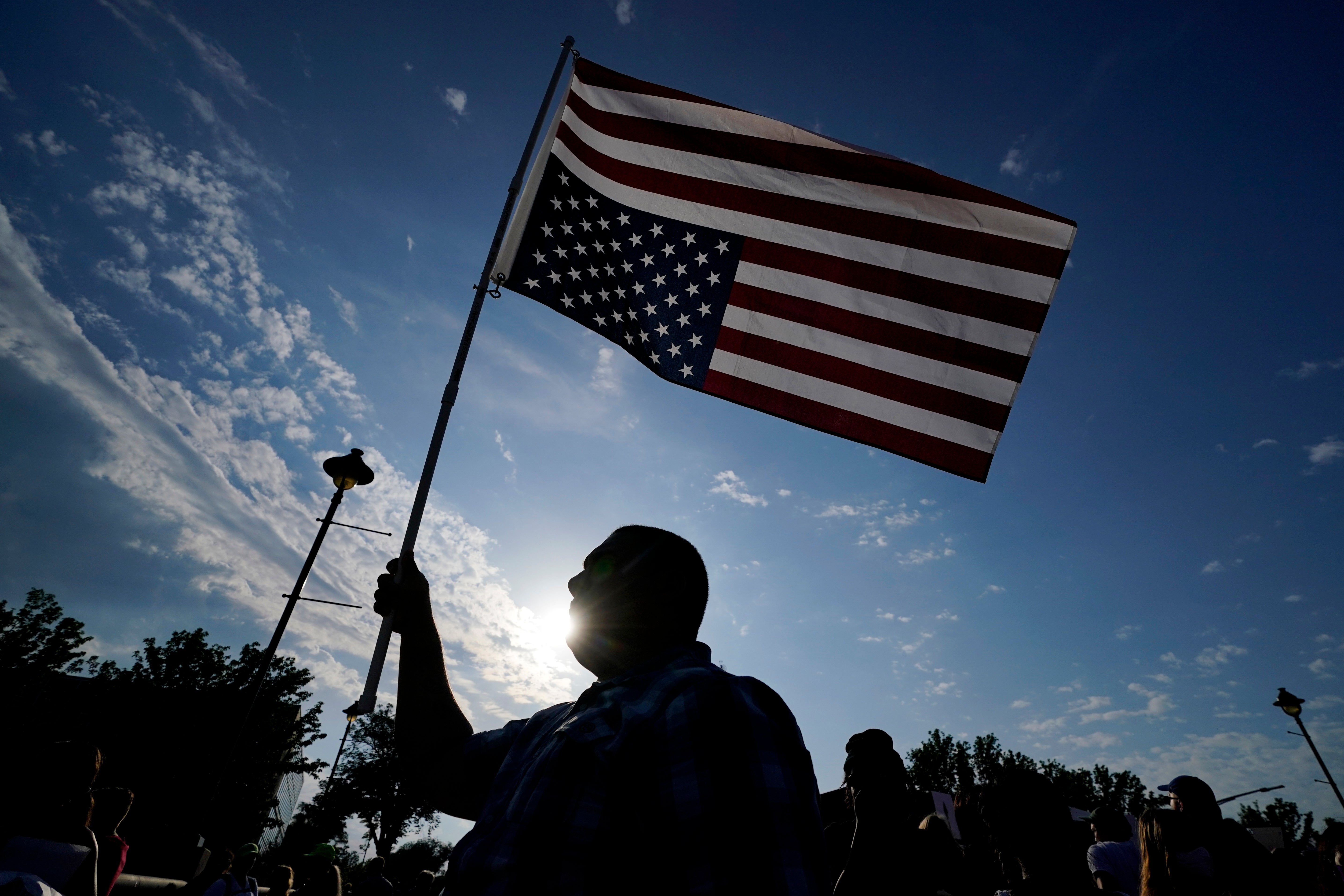Abortion clinics are already closing in the US hours after Roe v Wade overturned
Around half of states are expected to ban abortion after the court’s overturning of the landmark ruling
Your support helps us to tell the story
From reproductive rights to climate change to Big Tech, The Independent is on the ground when the story is developing. Whether it's investigating the financials of Elon Musk's pro-Trump PAC or producing our latest documentary, 'The A Word', which shines a light on the American women fighting for reproductive rights, we know how important it is to parse out the facts from the messaging.
At such a critical moment in US history, we need reporters on the ground. Your donation allows us to keep sending journalists to speak to both sides of the story.
The Independent is trusted by Americans across the entire political spectrum. And unlike many other quality news outlets, we choose not to lock Americans out of our reporting and analysis with paywalls. We believe quality journalism should be available to everyone, paid for by those who can afford it.
Your support makes all the difference.Clinics have already started closing in the United States after the Supreme Court’s ruling removed women’s right to an abortion.
Eight states with so-called trigger laws allowing an instant ban on abortion which included Alabama, Arizona, Arkansas, Kentucky, Missouri, South Dakota, Wisconsin and West Virginia stopped performing terminations after Friday’s decision.
Around half of states are expected to ban abortion after the court’s overturning of the landmark Roe v Wade ruling.
President Joe Biden said it was a “sad day for the court and for the country” and said the ruling was a “tragic error”.

At an abortion clinic in Little Rock, Arkansas, the doors were shut as soon as the court’s opinion was known.
Nurse Ashli Hunt told the BBC: “No matter how hard we prepare for bad news, when it finally hits, it hits hard. Having to call these patients and tell them Roe v Wade was overturned is heartbreaking.”
The Women’s Health Care Centre in New Orleans, Louisiana, also closed its doors and the staff were sent home and clinics in Texas have also shut.
The decision, which was welcomed by the country’s religious conservatives, has prompted protests in citites across the countries, including a demonstration outside the barricaded Supreme Court.
Some shouted, “The Supreme Court is illegitimate,” while waves of others, wearing red shirts with “The Pro-Life Generation Votes,” celebrated, danced and thrust their arms into the air.

Thousands chanted “We will rise up” in New York’s Washington Square. Meanwhile in Phoenix, Arizona police fired tear gas at protesters and in Los Angeles protesters temporarily blocked traffic on a highway.
The decision by the Supreme Court is currently at odds with public opinion in the country where a majority of Americans are in favour of preserving the Roe v Wade decision.
A recent survey carried out by Pew found that 61 per cent of adults think abortion should be legal all of or most of the time, compared with 37 per cent who think it should be illegal all or most of the time.
Analysis by Planned Parenthood, who provide abortion services in the US, said that around 36 million women are set to lose access to terminations in their state.
Former president Donald Trump was quick to take credit for the Supreme Court’s ruling, calling it “the biggest WIN for LIFE in a generation”.
He said the rulings and others “were only made possible because I delivered everything as promised, including nominating and getting three highly respected and strong Constitutionalists confirmed to the United States Supreme Court. It was my great honour to do so!”
Three Trump appointees voted on Friday to scrap Roe v Wade and they were Neil Gorsuch, Brett Kavanaugh and Amy Coney Barrett.

The ruling came more than a month after the leak of a draft opinion by Justice Samuel Alito indicating the court was prepared to overturn the ruling.
Mississippi, Alabama, Kentucky and Missouri are among 13 states, mainly in the South and Midwest, that already have laws on the books to ban abortion in the event Roe v Wade was overturned.
Another half-dozen states have near-total bans or prohibitions after six weeks of pregnancy, before many women know they are pregnant.
In roughly a half-dozen other states, including West Virginia and Wisconsin, the fight will be over dormant abortion bans that were enacted before Roe v Wade was decided in 1973 or new proposals to sharply limit when abortions can be performed.
Additional reporting by agencies




Join our commenting forum
Join thought-provoking conversations, follow other Independent readers and see their replies
Comments